There is a certain kind of maturity that can be attained only through the discipline of suffering.
D. A. CARSONSome Christians want enough of Christ to be identified with him but not enough to be seriously inconvenienced.
More D. A. Carson Quotes
-






-





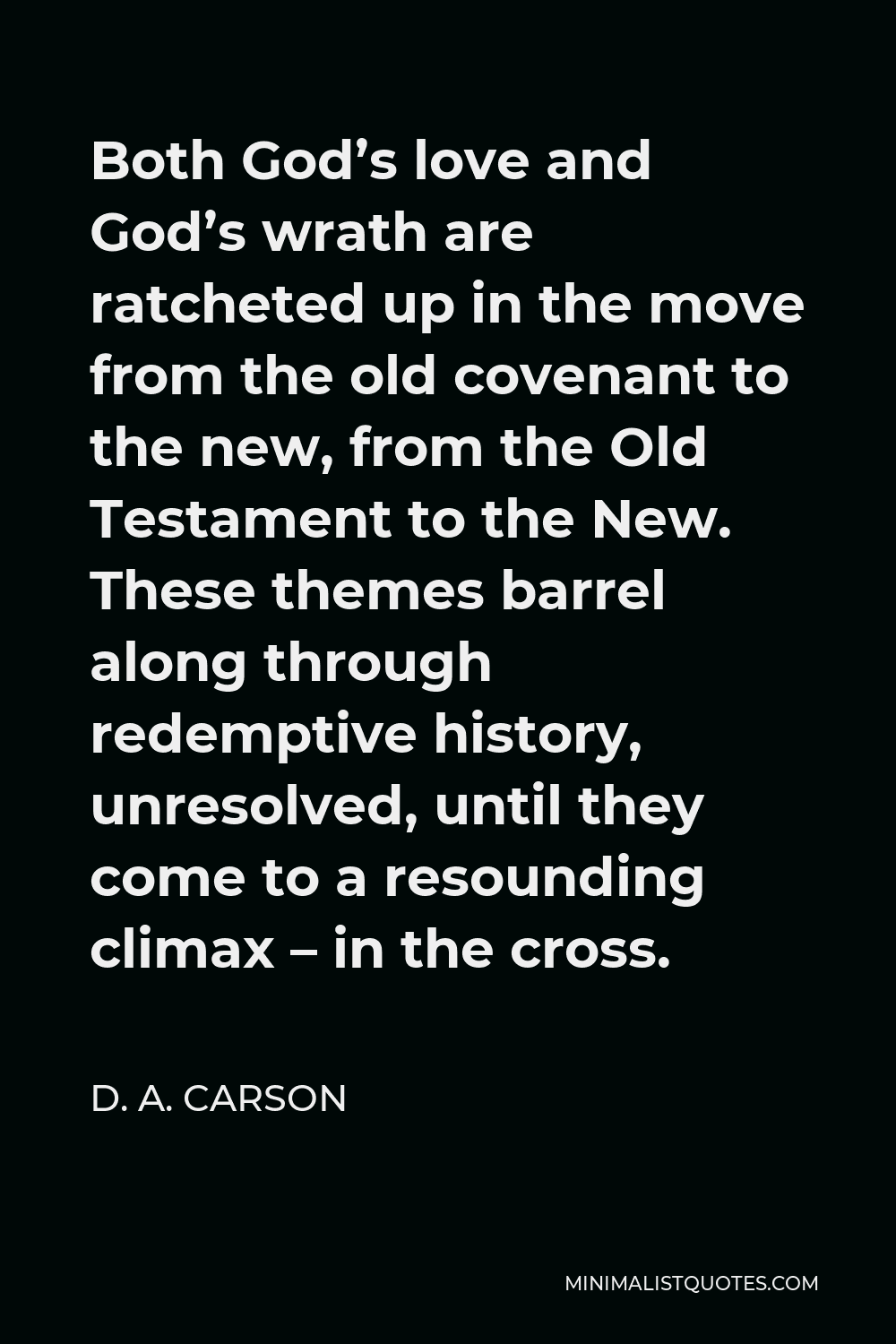
Both God’s love and God’s wrath are ratcheted up in the move from the old covenant to the new, from the Old Testament to the New. These themes barrel along through redemptive history, unresolved, until they come to a resounding climax – in the cross.
D. A. CARSON -






Some Christians want enough of Christ to be identified with him but not enough to be seriously inconvenienced.
D. A. CARSON -






God is absolutely sovereign, but his sovereignty never mitigates human responsibility.
D. A. CARSON -





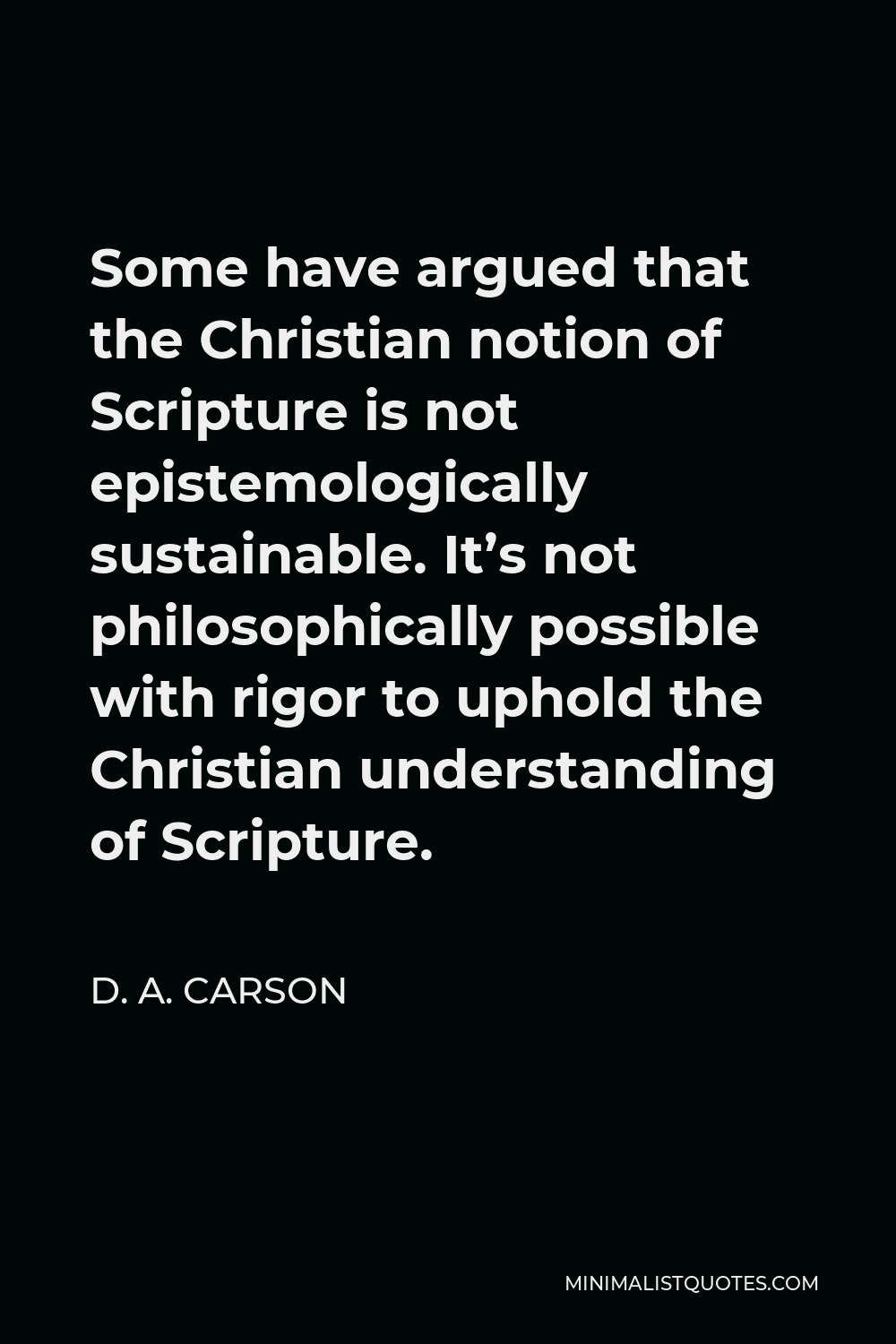
Some have argued that the Christian notion of Scripture is not epistemologically sustainable. It’s not philosophically possible with rigor to uphold the Christian understanding of Scripture.
D. A. CARSON -






Any term can be distorted or domesticated or fly off the handle because of another alien philosophical structure that’s imposed on the text and so on. Inerrancy is no different from what we find in every other theologically loaded word.
D. A. CARSON -







Many of us in our praying are like nasty little boys who ring front door bells and run away before anyone answers.
D. A. CARSON -






Love the church because Jesus loves it.
D. A. CARSON -






That God normally operates the universe consistently makes science possible; that he does not always do so ought to keep science humble.
D. A. CARSON -






A little courage helps more than much knowledge, a little human sympathy more than much courage, and the least tincture of the love of God more than all.
D. A. CARSON -





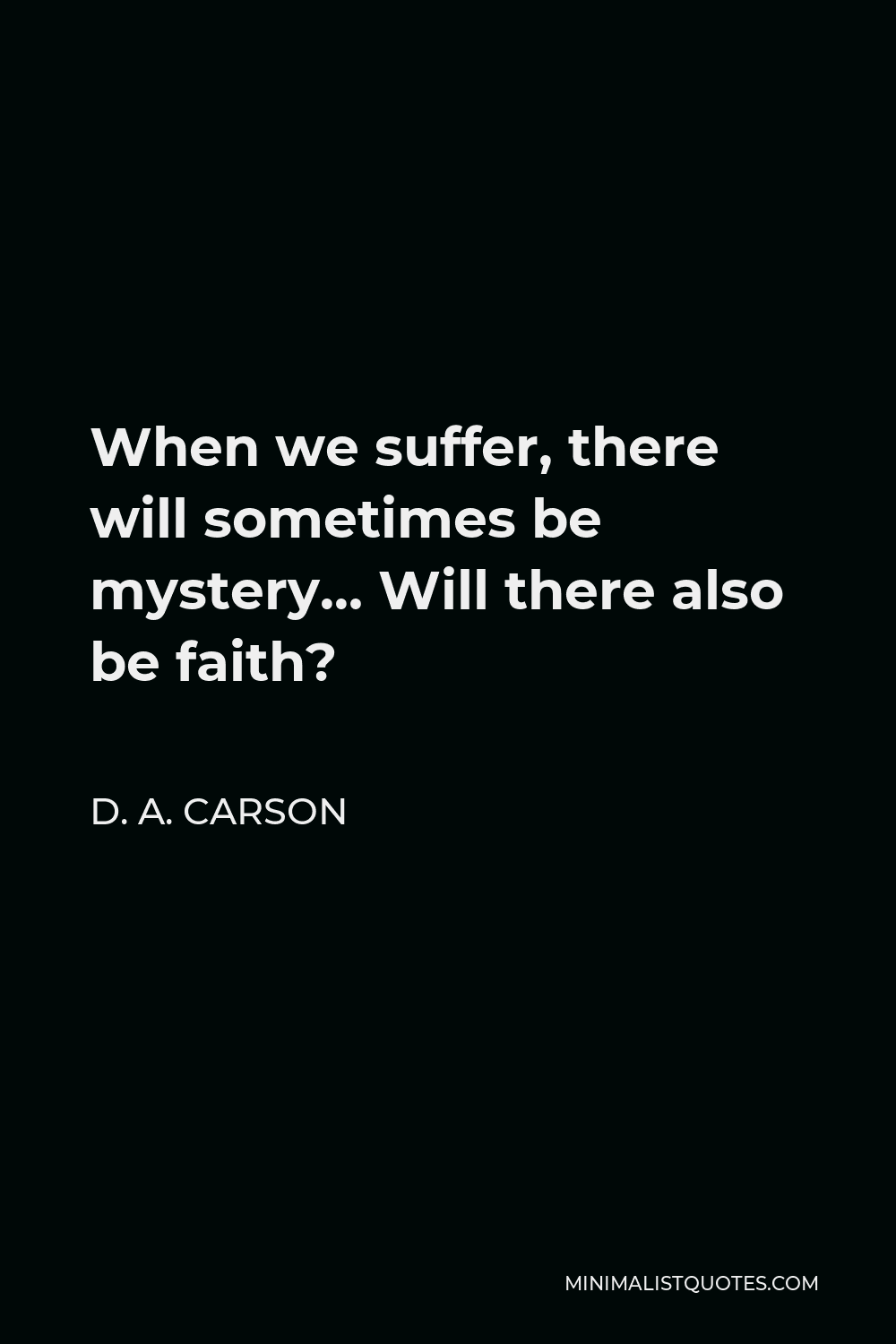
When we suffer, there will sometimes be mystery… Will there also be faith?
D. A. CARSON -





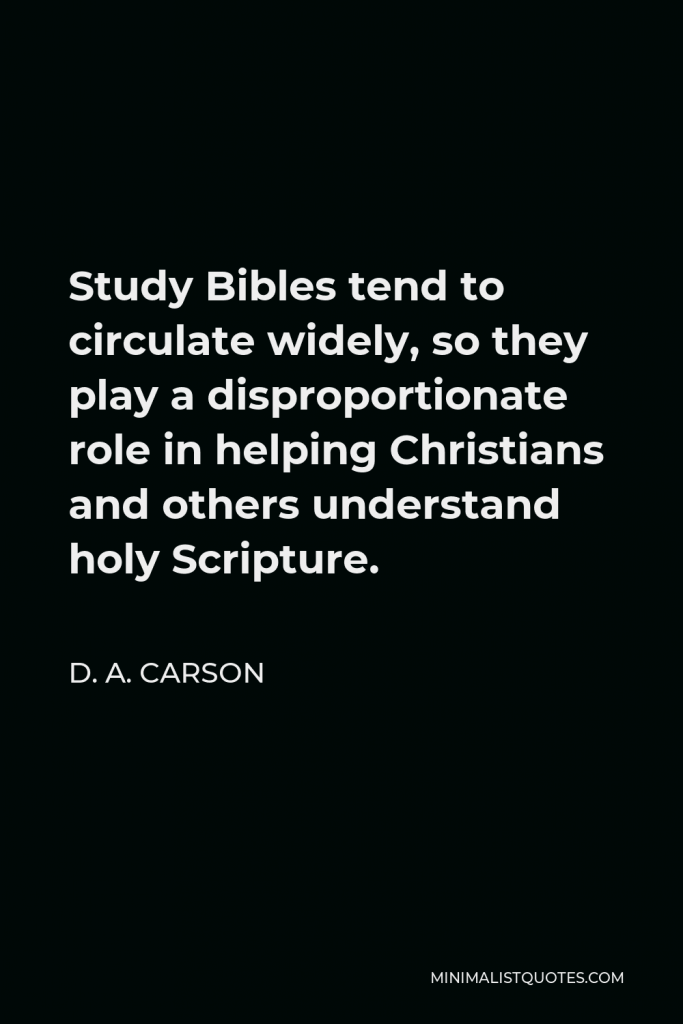

Study Bibles tend to circulate widely, so they play a disproportionate role in helping Christians and others understand holy Scripture.
D. A. CARSON -







It’s just that the group has accepted that document as authoritative for their group. And some documents are truthful and reliable but they are ignored, so they have no authority for that particular group.
D. A. CARSON -





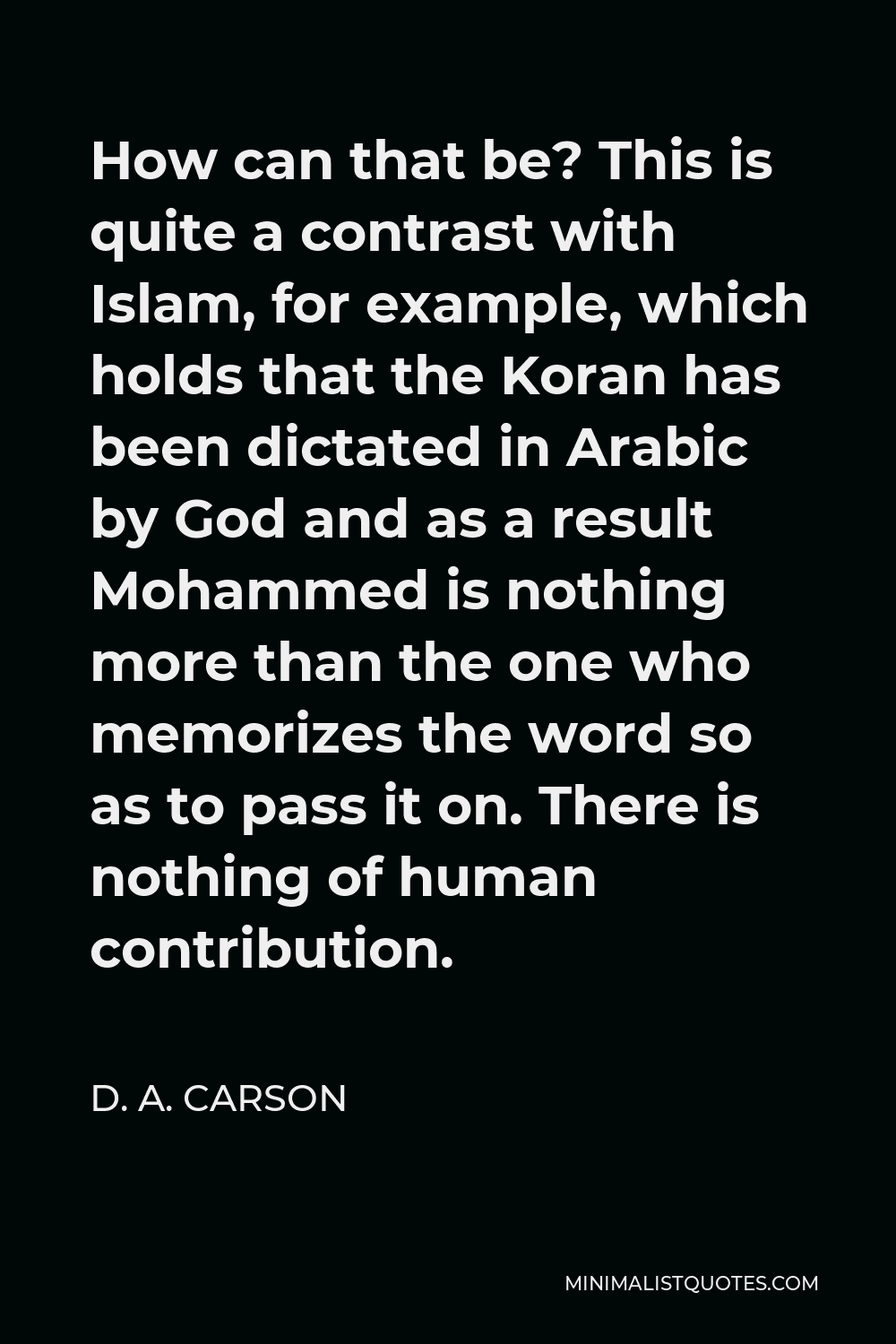
How can that be? This is quite a contrast with Islam, for example, which holds that the Koran has been dictated in Arabic by God and as a result Mohammed is nothing more than the one who memorizes the word so as to pass it on. There is nothing of human contribution.
D. A. CARSON -






He is sold for thirty pieces of silver but gives His life a ransom for many; He will not turn stones to bread for Himself but gives His own body as bread for people.
D. A. CARSON -





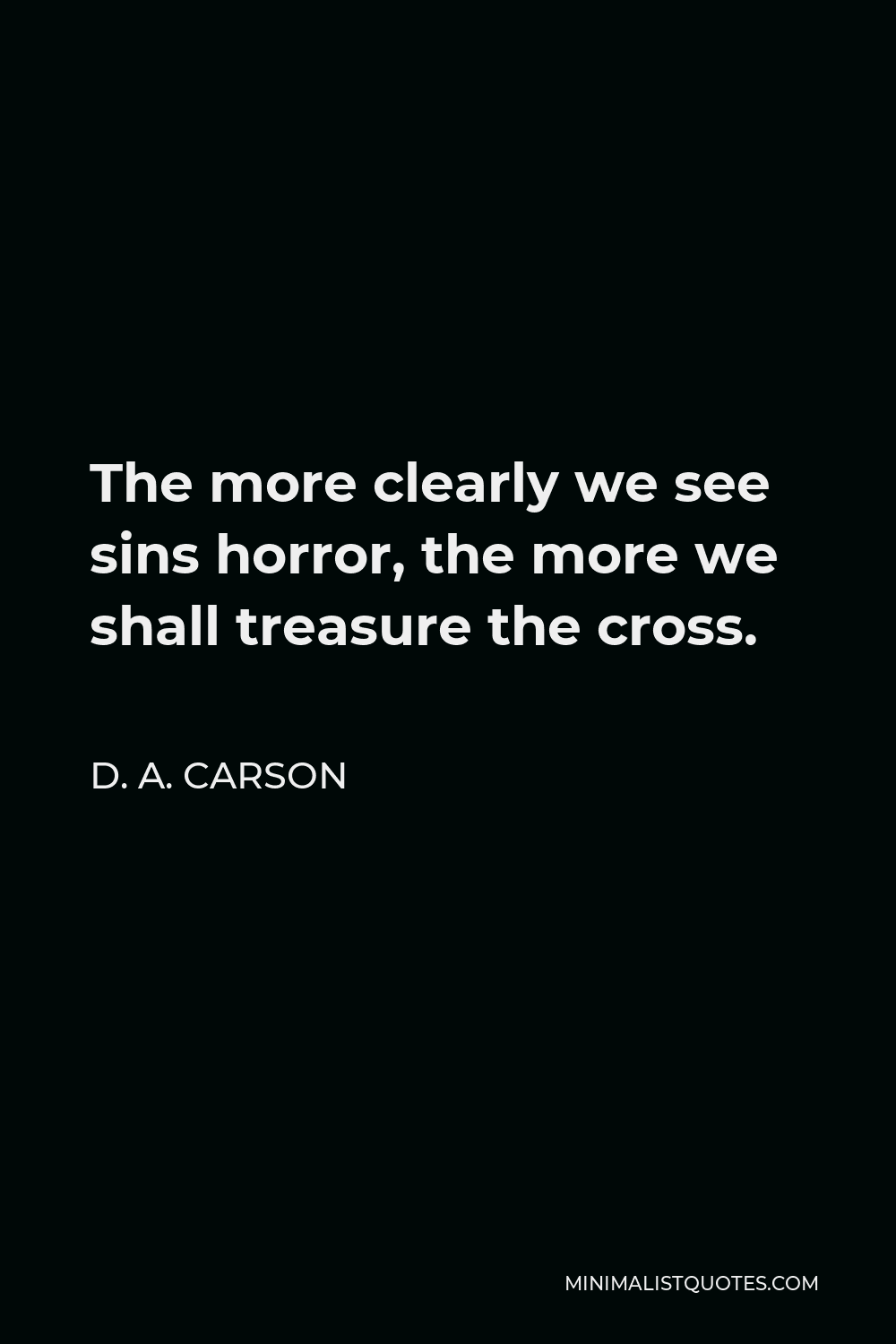
The more clearly we see sins horror, the more we shall treasure the cross.
D. A. CARSON






